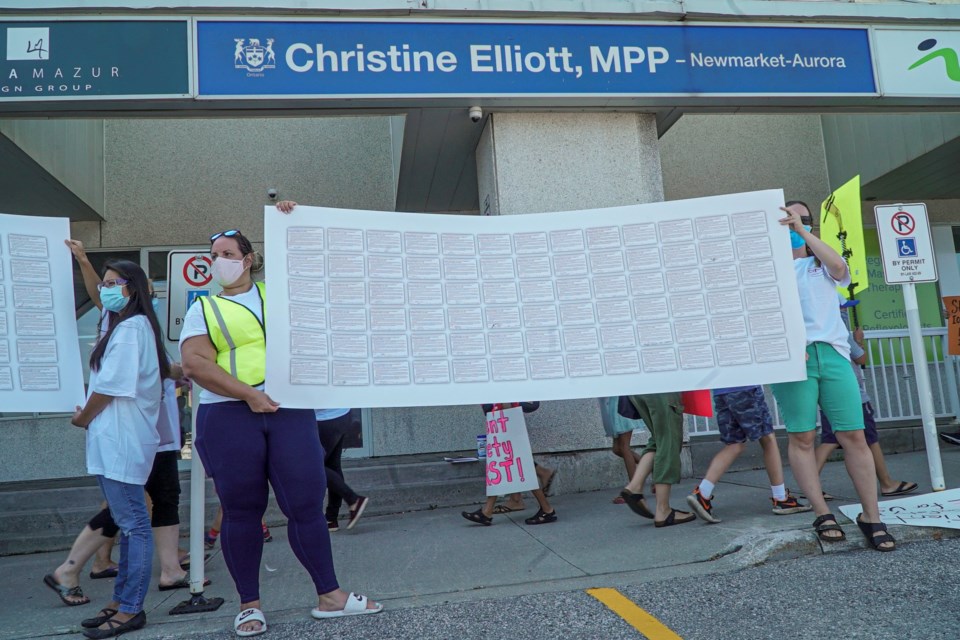Registered nurses and registered respiratory therapists are rallying outside Minister of Health Christine Elliott’s Newmarket office today to deliver postcards demanding that the Ministry of Health stop Southlake Regional Health Centre's plan to implement "an unsafe model of care to its intensive care unit," according to the Ontario Nurses’ Association (ONA).
The RNs and RRTs requested a meeting with Elliott but have not received a response, according to ONA, in a statement. The postcards have been signed by 95 per cent of the ONA members from Southlake’s three critical care units.
The hospital's RNs and RRTs have been saying for weeks that the Newmarket hospital's plan to introduce team-based nursing care and to hire RNs without full critical care education and training into a "pre-sponsorship ICU program" is "unsafe for patients and must be stopped," ONA said.
“As highly regulated and skilled frontline RNs and RRTs, our members understand the risks to both safe patient care and to their own licences to practise that this new model of care subjects them to,” said ONA president and RN Vicki McKenna in a statement.
“Being a patient advocate is a central part of their role, and they take it seriously. Our members have tried to work with Southlake’s CEO, have requested meetings with the hospital board and with the Minister of Health to explain the risks and offer solutions, and are now formally asking the minister to step in to prevent this wrong-headed plan from being implemented.”
READ MORE: 'I am shocked and terrified': Southlake won't budge on plan to hire unqualified ICU nurses, ONA says
According to McKenna, the hospital's plan has already impacted retention of the RNs and RRTs working in the ICU.
“It’s no secret that the stresses of the COVID-19 pandemic have worsened the severe critical care nursing shortage that existed before the pandemic,” said McKenna. “It is vital that the Minister of Health listen to our members to protect their patients from harm and prevent further staff from leaving. Having been met with deaf ears and a refusal to listen to these care delivery experts, our members have taken the next step. I sincerely hope Minister Elliott is concerned enough about patient safety and the quality of critical care being provided in her own community to listen and take action to prevent harm to residents,” she said.
The model of care Southlake plans to implement in the ICU was piloted in Ontario years ago and proved to be detrimental to safe patient care and was reversed. Critical care nurses and health-care professionals must obtain considerable additional training and education to provide the specialized care seriously ill and unstable patients in ICUs require, ONA said.
The union represents more than 68,000 registered nurses and health-care professionals and more than 18,000 nursing student affiliates, providing care in hospitals, long-term care facilities, public health, the community, clinics and industry.
Southlake's model of care addresses ICU staff shortages felt by hospitals throughout the province which have been "exacerbated" by the pandemic, said Kathryn Perrier, manager of corporate communications for Southlake in an email.
Team-based nursing pairs new staff members with existing ICU staff where they will receive the education, training and support they need to become fully trained ICU nurses. According to Perrier this model of care is being used at other hospitals.
"We are meeting regularly with ICU staff to get their feedback to refine our plans. Overall, patient safety and the provision of high-quality care remain our top priorities," she said.
In response to a request for comment minister Elliott's office referred to a previously emailed statement by the Ministry of Health: "The ministry encourages all health-care organizations to make decisions that promote quality of care and the safety of patients and providers."
